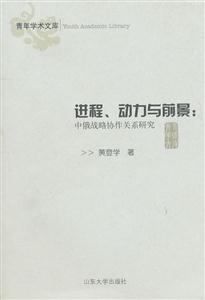
作者:世界知识出版社
页数:245
出版社:世界知识出版社
出版日期:2018
ISBN:9787501257812
电子书格式:pdf/epub/txt
内容简介
近二十年来,世界见证了中国作为优选大国的崛起。伴随着经济高速发展,中国成为当今世界第二大经济体,并在优选地缘政治舞台上发挥着越来越大的作用,世界各地围绕中国的发展道路、外交政策以及其如何影响包括非洲在内的其他国家,展开了越来越激烈的辩论。中国与非洲长期维持友好关系,这种关系更是在冷战结束后进入了一个新时期。靠前舞台还有中非境内的发展机遇与挑战为巩固中非经济领域的合作关系提供沃土,有利于两国实现2000年开始的巨大经济转型。非洲一直致力于摆脱世界经济边缘化的困境,忙于应对发展中的多重挑战,中非关系的日益巩固势必为非洲未来发展带来契机。
目录
CHAPTER Ⅱ THEORETICAL FRAMEWORK 016
CHAPTER Ⅲ AN OVERVIEW OF AFRICA AND CHINA 033
CHAPTER Ⅳ AFRICA-CHINA RELATIONS:GENERAL ANALYSIS AND IMPLICATIONS 089
CHAPTER Ⅴ ETHIOPIA-CHINA RELATIONS:A CASE ANALYSIS 158
CHAPTER Ⅵ REACTIONS ON AFRICA-CHINA RELATIONS 196
CHAPTER Ⅶ CONCLUSION SUMMARY AND RECOMMENDATIONS 210
REFERENCES 233
节选
《非中关系:新殖民主义还是战略伙伴关系?:以埃塞俄比亚为案例分析》: The consequence of the growing loss of control over policies relating to key economic issues was the menacing threat posed to Africa’s already tenuous sovereignty, Although it is a known fact absolute sovereignty may not be tenable in the current global economic order characterized by complex nterdependence and prevalence of many non-state actors, countries nonetheless try to maintain a degree of autonomy in terms of their ability to determine policy choices. However, with aid as a central factor in foreign policy directions, the ceding of the continent’s sovereignty to international creditors has been an obvious case wluch could not be denied. One clear example of such a situation explained above was the adoption of SAPs and their vast display of conditionalities, most of them unattainable, was not only evidence of the creditors’ control of the adjusting countries, but also the extent to which the latter have ceded their sovereignty. The illusions about Africa’s economic sovereignty has thus been more manifested in the post-Cold War period than ever before,The sequel to the loss of sovereignty has been the related problem of consolidating the new and nascent regionalism in Africa. One of the daunting challenges unleashed by globalization is how to remain competitive in the hostile global economy. The need to maintain competitiveness is partly responsible for the creation of regional economic blocs by which member countries attempt to insulate their economies from the devastating consequences of global competition.The attempts across Africa to strengthen the existing common regional economic communities and later in early 2000s the desire shown to replace the continental Organization of the African Unity (OAU) to a more pragmatic and politically and legally powerful organization of the African Union are policies designed to mitigate the effects of competition on African states. For Africa, a regional and continental unity has a strategic advantage for the countries both in pulling African resources and minds closer in order to advance the common interests of the continent within and globally and dispel common challenges. It also has an additional advantage of providing alternative paths out of the continent’s development challenges by creating a larger market within the continent thereby reducing its precarious reliance on the global market. However, the critical question was how the continent can simultaneously remain committed to the seemingly contradictory terrains of creditor conditionalities on the one hand and the ideals of continental regionalism on the other. There was as well growing concern that the donor-oriented posture of African states may be incompatible with effective regionalism or continental unity,particularly where the demands of creditors conflict with the dictates of continental union.(Shaw, 1989) This dilemma posed daunting questions for Africa’s international relations. ……















